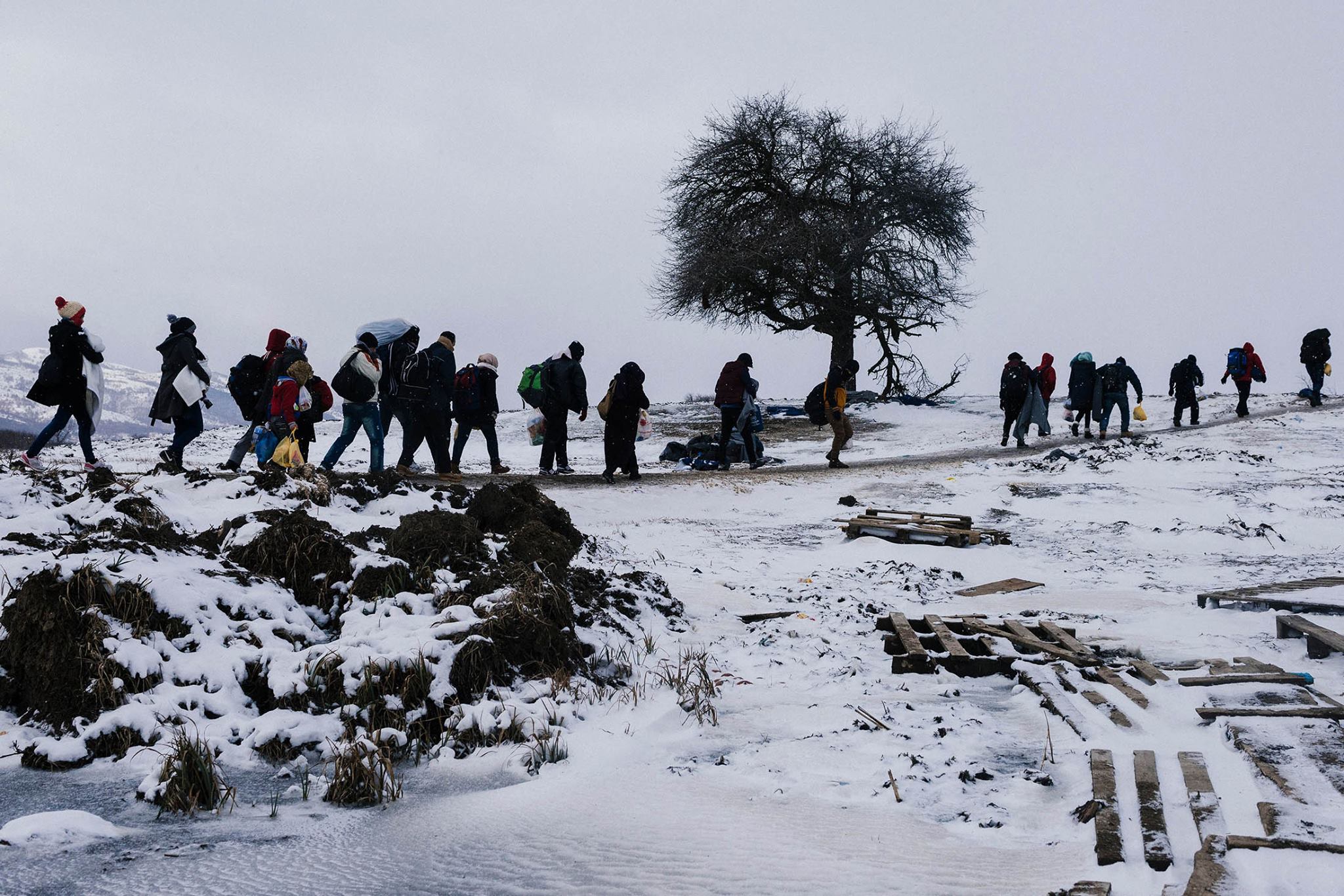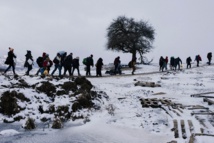"Today we did make progress, and it augurs well for the future," Malta's interior minister Carmelo Abela told a final press conference as his Mediterranean archipelago plays the current host of the six-month rotating EU presidency.
EU migration commissioner Dimitris Avramopoulos echoed his remarks after having begun the day urging the bloc's 28 member states to break the 18-month deadlock on reforming the Dublin rules.
"For the first time I have a positive impression that we are not far from a common solution with real tangible solidarity," Avramopoulos told the same briefing.
Under the current Dublin rules, asylum seekers who have travelled on to other EU nations are to be returned to their first port of call.
The ministers debated a three-stage approach to Dublin, with the rule requiring people to apply for asylum in the country of first arrival still in place during periods of "normal" migration, German interior minister Thomas de Maiziere said.
However, if migrant arrivals pass a certain threshold, another mechanism will be introduced where other member states share more of the burden, he added without elaborating on how it would be shared.
- 'Non-refoulement -
And if "there is a truly massive influx," member states could even consider sending migrants to "safe places outside the European Union," he said.
European sources said organisations like the UN refugee agency and the International Organization for Migration could help countries in North Africa or those further south to set up reception centres that meet international standards and arrange for migrants to return to their countries of origin.
Avramopoulos said "all agree on the three-step approach" even if details need to be worked out.
He also said the EU would still respect the international legal principle of non-refoulement, which prohibits the return of a refugee to a country where he or she could be persecuted or otherwise in danger.
Member states still have not agreed how to share the burden.
Eastern European countries like Hungary, Slovakia and Poland have been among the most reluctant in the bloc to admit asylum seekers, suggesting they could help financially instead.
The ministers were meeting after Maltese Prime Minister Joseph Muscat warned the EU could face an "unprecedented" flow of migrants in the spring across the central Mediterranean from Libya to Italy.
Smuggling on that route is picking up sharply with more than 180,000 migrants landing in Italy last year, compared with a previous annual record of 170,100 in 2014.
An EU aid-for-cooperation deal struck with Turkey last March has dramatically reduced the numbers of asylum seekers arriving in Greece, the previous main entry point for Europe.
EU officials say the vast majority of people travelling over the central Mediterranean are migrants in search of work rather than fleeing war and persecution.
Those who fled to Greece were mainly refugees from Syria and other conflict-torn countries.
-------------------------------------------------------------------------------------------------------------------
EU migration commissioner Dimitris Avramopoulos echoed his remarks after having begun the day urging the bloc's 28 member states to break the 18-month deadlock on reforming the Dublin rules.
"For the first time I have a positive impression that we are not far from a common solution with real tangible solidarity," Avramopoulos told the same briefing.
Under the current Dublin rules, asylum seekers who have travelled on to other EU nations are to be returned to their first port of call.
The ministers debated a three-stage approach to Dublin, with the rule requiring people to apply for asylum in the country of first arrival still in place during periods of "normal" migration, German interior minister Thomas de Maiziere said.
However, if migrant arrivals pass a certain threshold, another mechanism will be introduced where other member states share more of the burden, he added without elaborating on how it would be shared.
- 'Non-refoulement -
And if "there is a truly massive influx," member states could even consider sending migrants to "safe places outside the European Union," he said.
European sources said organisations like the UN refugee agency and the International Organization for Migration could help countries in North Africa or those further south to set up reception centres that meet international standards and arrange for migrants to return to their countries of origin.
Avramopoulos said "all agree on the three-step approach" even if details need to be worked out.
He also said the EU would still respect the international legal principle of non-refoulement, which prohibits the return of a refugee to a country where he or she could be persecuted or otherwise in danger.
Member states still have not agreed how to share the burden.
Eastern European countries like Hungary, Slovakia and Poland have been among the most reluctant in the bloc to admit asylum seekers, suggesting they could help financially instead.
The ministers were meeting after Maltese Prime Minister Joseph Muscat warned the EU could face an "unprecedented" flow of migrants in the spring across the central Mediterranean from Libya to Italy.
Smuggling on that route is picking up sharply with more than 180,000 migrants landing in Italy last year, compared with a previous annual record of 170,100 in 2014.
An EU aid-for-cooperation deal struck with Turkey last March has dramatically reduced the numbers of asylum seekers arriving in Greece, the previous main entry point for Europe.
EU officials say the vast majority of people travelling over the central Mediterranean are migrants in search of work rather than fleeing war and persecution.
Those who fled to Greece were mainly refugees from Syria and other conflict-torn countries.
-------------------------------------------------------------------------------------------------------------------









 Home
Home Politics
Politics











